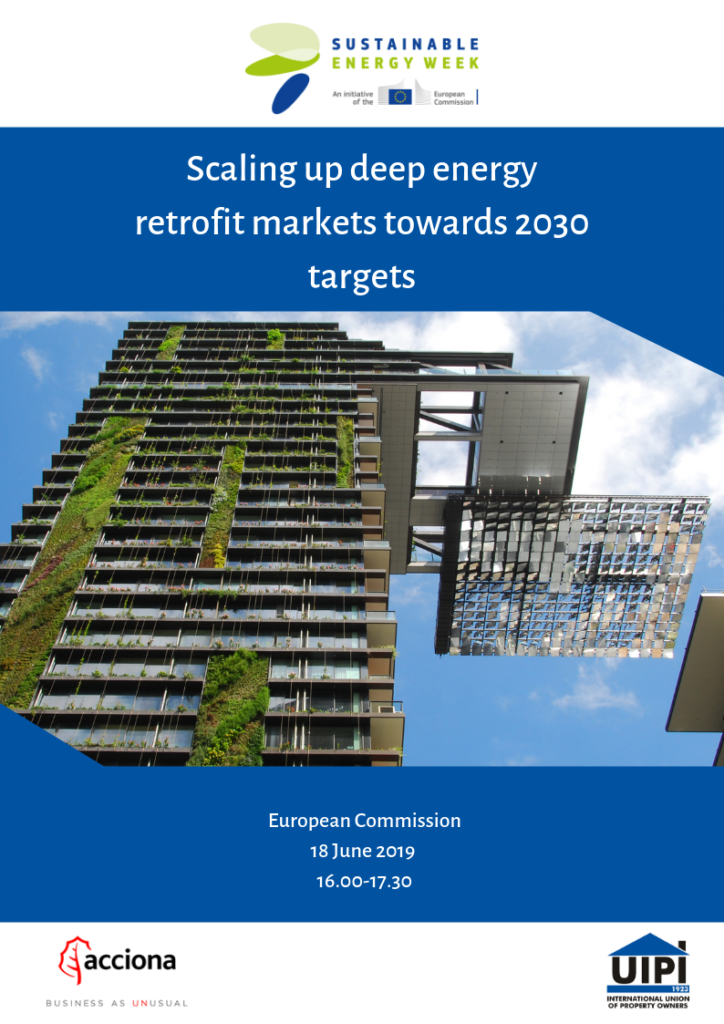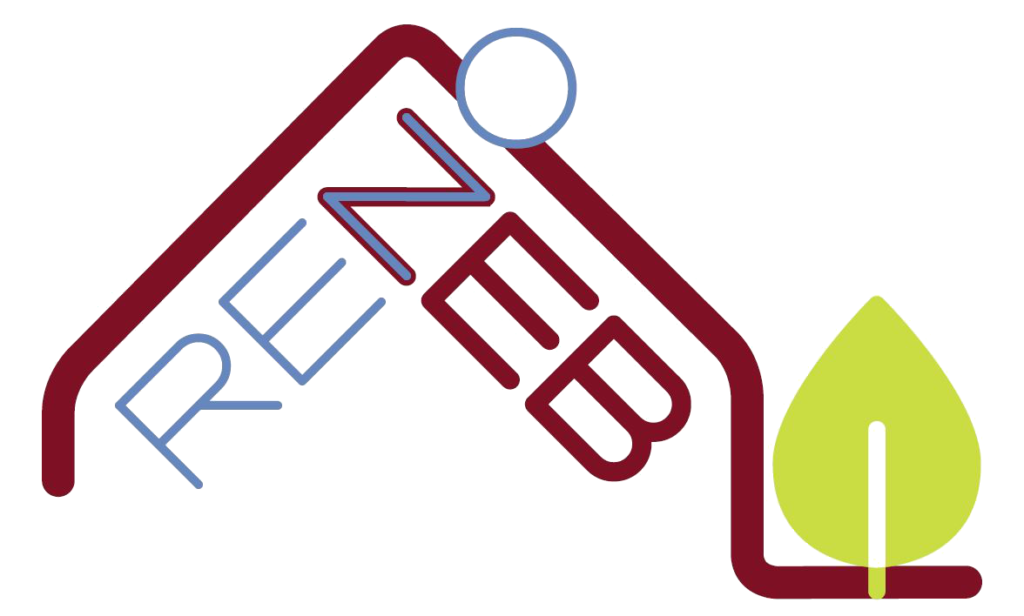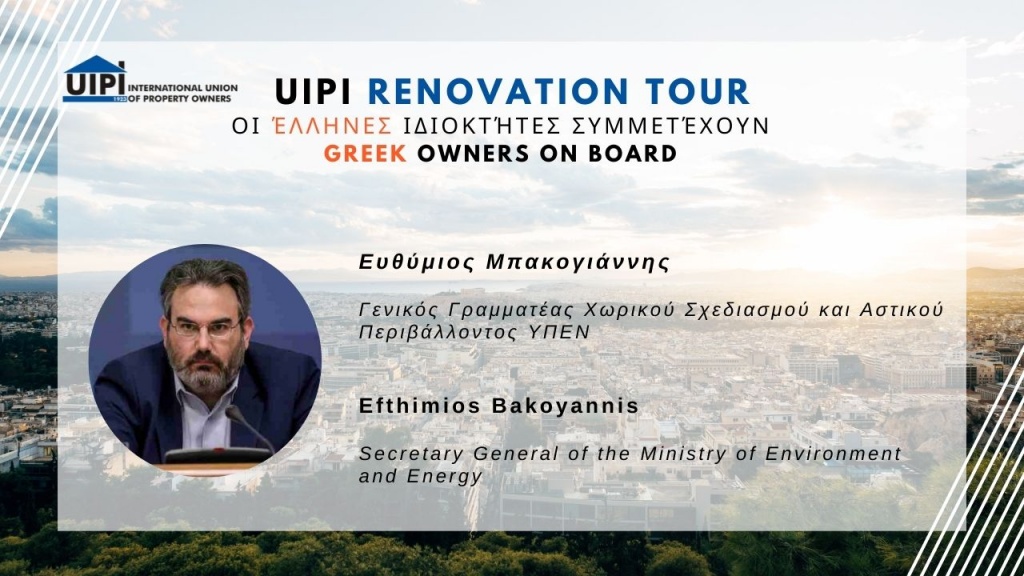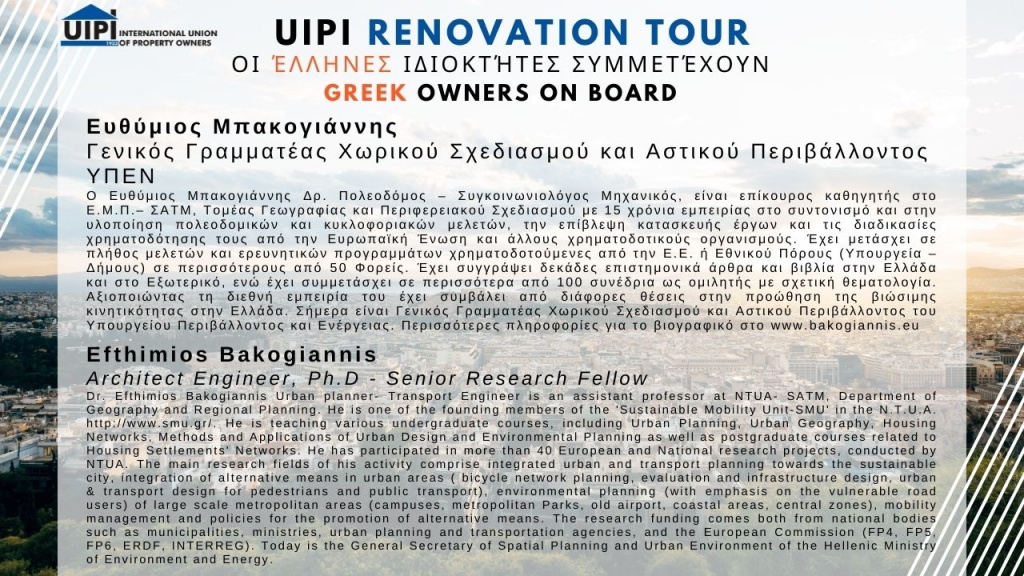EU Sustainable Energy Week - UIPI Event
Scaling up deep energy retrofit markets towards 2030 targets
18 June 2019
Brussels, Belgium
Highlights

On 18 June, UIPI co-organised a session at the European Sustainable Energy Week 2019 (EUSEW) Policy Conference to discuss about how to create synergies among the actors of the energy renovation value chain in order to reach the 2030 targets.
The EU is funding various projects on issues around energy efficiency and building renovation. Yet, while similar projects address the same challenges, there is little information exchange, and collaboration between them. Additionally, these projects need to reflect market needs and expectations to ensure the uptake of the solutions they develop. Hence, the added value to confront them with the market. Finally, they can provide feedback to policy makers on how to reach the EU 2030 targets and the long-term objective of decarbonising the building stock by 2050.
Therefore, during the conference, projects’ representatives answered questions set up by a panel of policy makers and stakeholders, including property owners and architects. The panel was made up of Nora Bednarski from DG ENER, Veronika Schröpfer from the Architects’ Council of Europe (ACE) and our Director Emmanuelle Causse.
Among the different projects, RenoZEB gained particular attention from the panel and the audience. It aims at unlocking the nearly Zero Energy Building (nZEB) renovation market by increasing property value through a new systemic approach to retrofitting. This kind of innovative approaches are trying to answer market needs in order to foster and scale up the renovation process. Yet, as Emmanuelle Causse stressed, “solutions need to adapt to the market, it is not up to the market to adapt to solutions.”
Focus has also been given to the challenges implied by deep renovation, such as the costs, risks and life expectancy of new materials, the lack of skilled professionals and the scarce cooperation throughout the whole value chain. Possible step-by-step approaches to implement those solutions were also discussed.
Overall, thanks to the active involvement of speakers, panellists and participants, this event was the perfect occasion to exchange some best practices in view of the creation of stronger synergies within the energy renovation industry.





